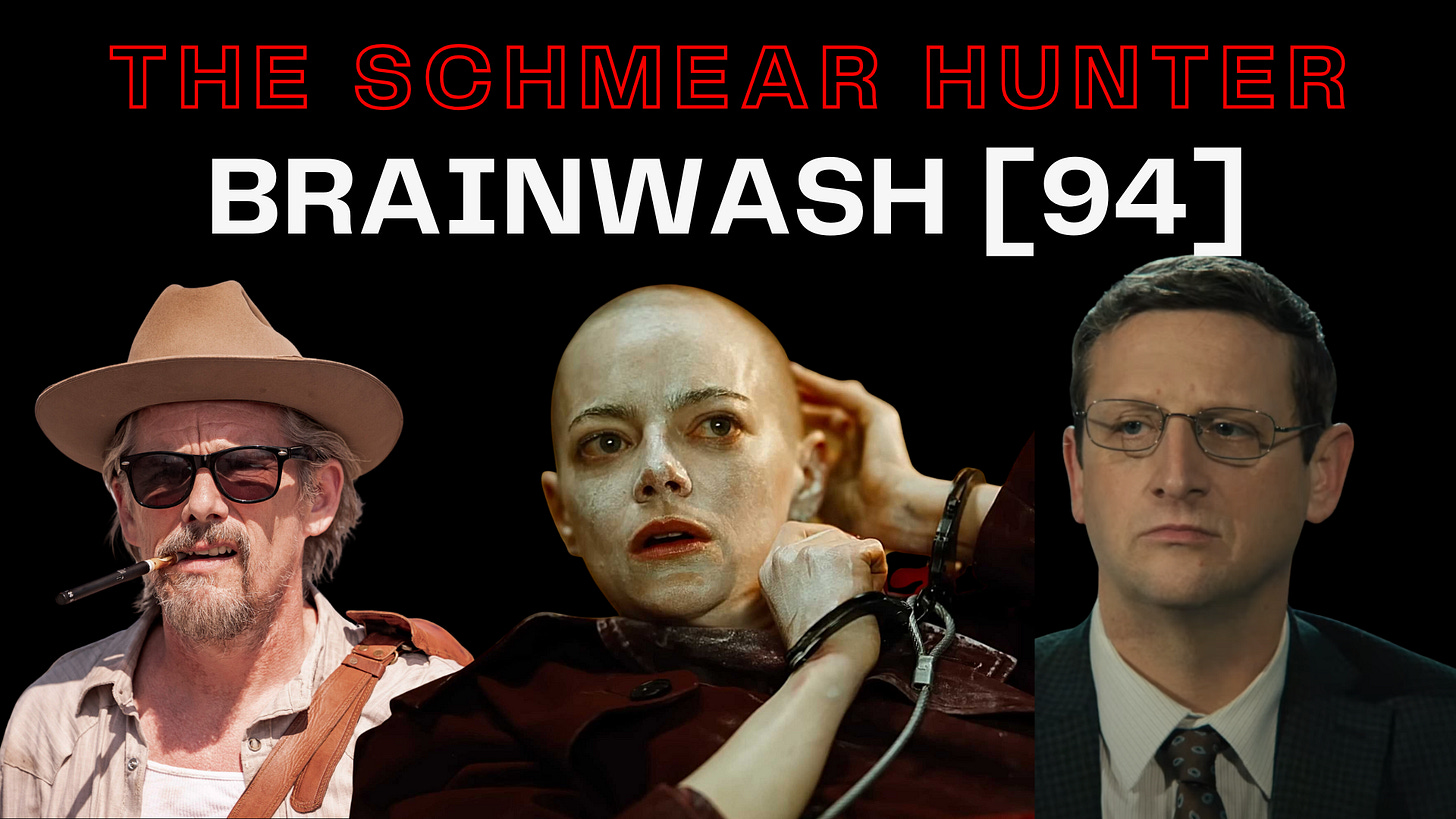Schmear Hunter's Brainwash [94]
Unpacking the Hype, Elevating the Unknown: 'Bugonia,' 'The Lowdown,' 'The Chair Company'
Hunters,
I acknowledge it’s been a long while since you’ve heard from me. As No Notes has grown, my time and attention have been diverted away from this Substack and The SchmearCast. I have not forgot…




